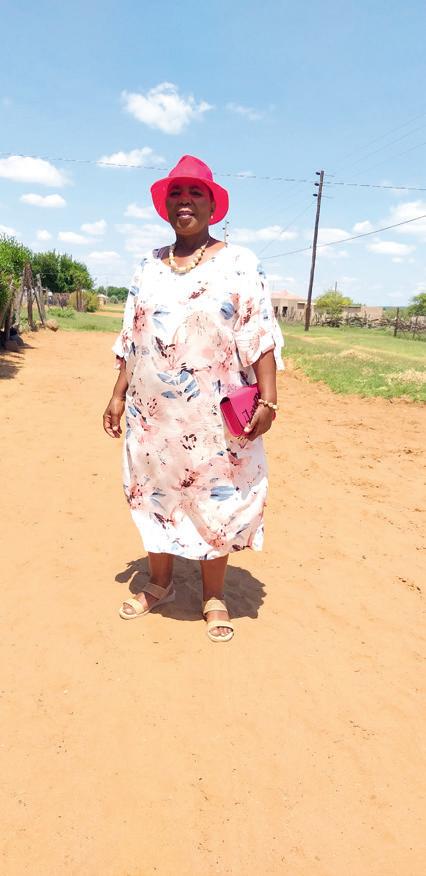SMMEs Empowerment
The upgrading, from gravel to bituminous (tarred) surface, of road D3556 in Tiberius within the Mogalakwena Local Municipality of the Waterberg District was a united front involving 12 villages, 23 local SMMEs and 44 local labourers. Among the benefits of the new road is improved access for the community to amenities such as the Tiberius Clinic, a primary healthcare facility in the village.
TIBERIUS COMMUNITY
PROUD OF QUALITY ROAD BUILT ON OWN SWEAT
he relationship between infrastructure contractor and the community is often one mired in mistrust, especially around on-time remuneration of labourers. Construction companies are often, unfairly so, likened to the proverbial caravan that make a stop only to exploit dispensable labourers and move on. Companies are often described as lacking compassion and abusing their impersonal power, but for 55-year-old Koena Johanna Shogole from the village of Tiberius, what she experienced from an appointed Roads Agency Limpopo (RAL) contractor and strength in unity between community members from neighbouring villages was sincerity and humanity on another level. Her company, MBKM Holdings, named after the initials of her children, herself and her husband, was one of the twenty-three (23) local Small, Medium and Micro Enterprises (SMMEs) engaged by contractor Hillary Construction, in the value chain of delivering a 7-kilometre upgrade project, from gravel to bituminous (tarred) surface, on road D3556 in Tiberius within the
28
Mmileng Issue 4 of 2020
Mogalakwena Local Municipality of the Waterberg District. Mrs Shogole’s company specialises in events, and she provided catering during monthly meetings and toilet rental for the duration of the contract period. Married into Tiberius, she was widowed during the course of the contract period. She had to endure a barrage of make-believe superstitions, cultural taboos and religious doctrine advanced by sections of her adopted community that circled her contract opportunity like vultures during her time of bereavement, her most vulnerable state. Job opportunities are often highly contested when they come to communities. According to every subcontractor and labourer interviewed, the contractor scored high in terms of on-time payments during the contract. And for Mrs Shogole, it was also the human touch that she received from unlikely sources that, well, touched her. “If it were not for the support and protection from community members from neighbouring villages and the people at Hillary (contactor), especially Johan, I would not have seen the contract through,” she said appreciatively. Notwithstanding, she was able to see the contract through feeding between twenty and thirty mouths per meeting she catered for, with the












